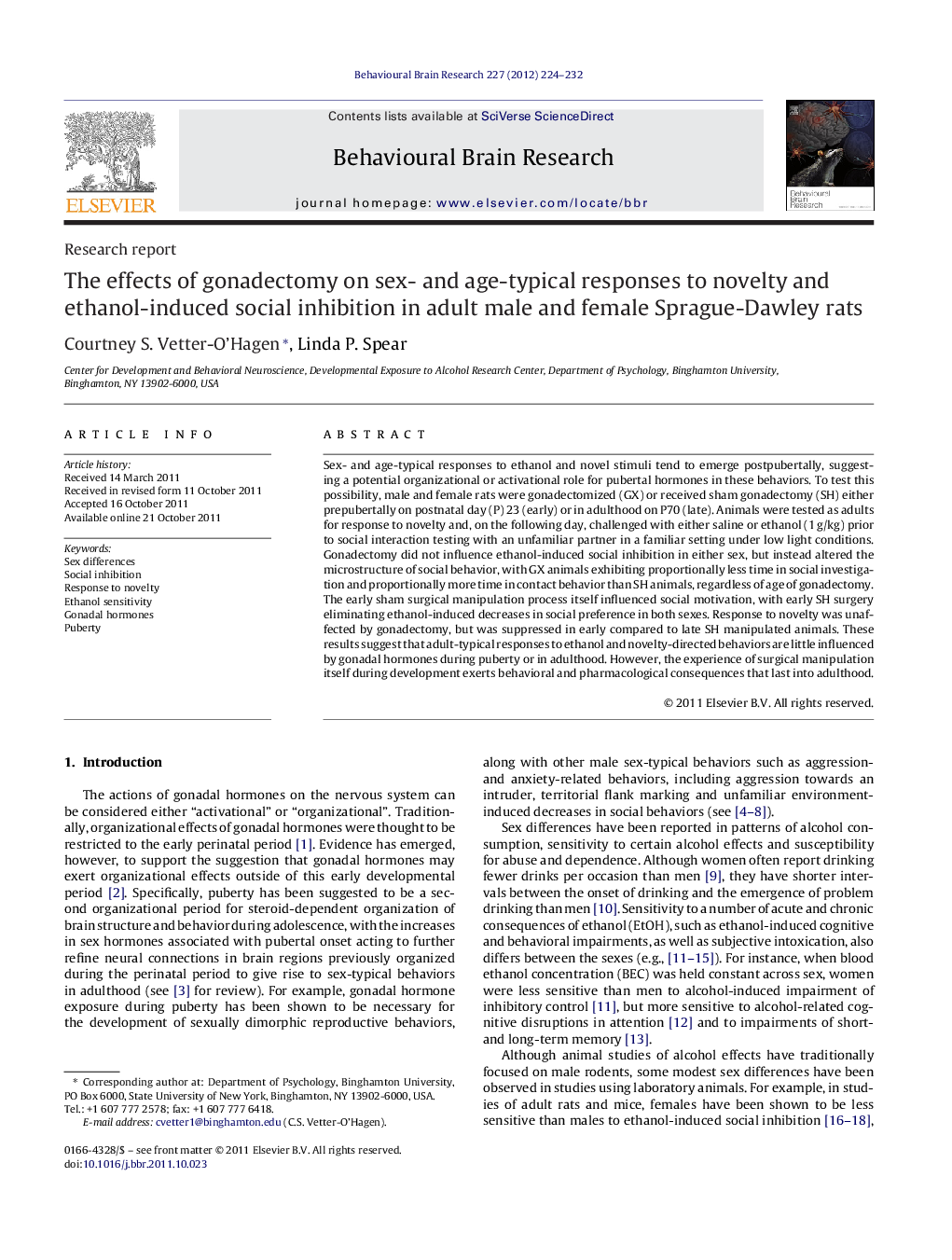| Article ID | Journal | Published Year | Pages | File Type |
|---|---|---|---|---|
| 4313405 | Behavioural Brain Research | 2012 | 9 Pages |
Sex- and age-typical responses to ethanol and novel stimuli tend to emerge postpubertally, suggesting a potential organizational or activational role for pubertal hormones in these behaviors. To test this possibility, male and female rats were gonadectomized (GX) or received sham gonadectomy (SH) either prepubertally on postnatal day (P) 23 (early) or in adulthood on P70 (late). Animals were tested as adults for response to novelty and, on the following day, challenged with either saline or ethanol (1 g/kg) prior to social interaction testing with an unfamiliar partner in a familiar setting under low light conditions. Gonadectomy did not influence ethanol-induced social inhibition in either sex, but instead altered the microstructure of social behavior, with GX animals exhibiting proportionally less time in social investigation and proportionally more time in contact behavior than SH animals, regardless of age of gonadectomy. The early sham surgical manipulation process itself influenced social motivation, with early SH surgery eliminating ethanol-induced decreases in social preference in both sexes. Response to novelty was unaffected by gonadectomy, but was suppressed in early compared to late SH manipulated animals. These results suggest that adult-typical responses to ethanol and novelty-directed behaviors are little influenced by gonadal hormones during puberty or in adulthood. However, the experience of surgical manipulation itself during development exerts behavioral and pharmacological consequences that last into adulthood.
► Male and female rats were gonadectomized pre-pubertally and in adulthood. ► Prepubertal sham surgical manipulation altered ethanol sensitivity and decreased response to novelty. ► Gonadectomy did not alter sensitivity to ethanol or response to novelty. ► Pubertal hormones do not influence certain adolescent-typical behaviors. ► The experience of surgical manipulation during development exerts lasting effects.
